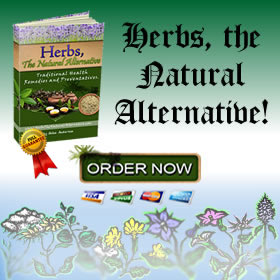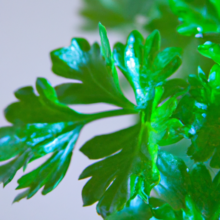Understanding the Basics of Herbalism
Have you ever wondered what herbalism is all about and how it actually works? Well, you’re about to find out! Herbalism is a practice that involves using plants and their extracts for medicinal purposes. It’s been used for centuries by different cultures around the world and is considered to be one of the oldest forms of medicine. But how exactly does it work? Through this article, we’ll delve into the basics of herbalism and shed light on how you can use it to improve your health and well-being.
When it comes to herbalism, there’s a lot more to it than just brewing a cup of herbal tea. It’s all about harnessing the power of nature to promote healing and restore balance in the body. By using various parts of plants like leaves, roots, flowers, and stems, herbalists create natural remedies to treat a wide range of ailments. From relieving anxiety and improving digestion to boosting the immune system and reducing inflammation, herbs have an incredible ability to support our well-being. So, if you’re curious about herbalism and want to learn more about how it can benefit you, keep reading! In the next paragraphs, we’ll explore the different ways herbs can be used, the key principles of herbalism, and some popular herbs you can start incorporating into your daily routine.

What is Herbalism?
Definition of herbalism
Herbalism, also known as herbal medicine or botanical medicine, is the practice of using plants and plant extracts for medicinal purposes. It is a holistic approach to healthcare that has been used for centuries in various cultures around the world. Instead of relying on synthetic drugs, herbalism utilizes the healing properties of herbs to promote health and well-being.
Historical background of herbalism
The use of plants for medicinal purposes dates back to ancient times. Herbalism has roots in ancient civilizations such as Egypt, China, and India, where herbal remedies were an integral part of traditional medicine. Through trial and error, these ancient healers discovered the medicinal properties of various plants and passed down their knowledge through generations.
Concept of herbal medicine
The concept of herbal medicine revolves around the idea that nature provides us with a wide array of plants that contain healing properties. These plants can be used to treat a variety of health issues, from minor ailments to chronic conditions. Herbal medicine puts emphasis on using the whole plant, rather than isolating specific compounds, as it believes that the combination of compounds in a plant work synergistically to achieve the desired therapeutic effects.
How Does Herbalism Work?
Principles of herbalism
Herbalism operates on several principles. The first principle is individualization, which acknowledges that each person is unique and responds differently to treatments. Herbal remedies are customized according to the specific needs of the individual, taking into account their overall health, lifestyle, and any existing medical conditions.
The second principle is treating the root cause, rather than just the symptoms. Herbalists aim to identify the underlying cause of an illness or imbalance and address it, rather than simply alleviating the symptoms. This approach promotes long-term healing and prevention of further health issues.
Methods of herbal preparation
Herbalists use various methods to prepare herbs for medicinal use. One common method is infusion, in which dried herbs are steeped in hot water to extract their medicinal properties. Decoction is another method, involving simmering tougher plant parts, such as roots or bark, in water to release their healing compounds.
Tinctures are herbal extracts made by soaking herbs in alcohol or glycerin. This extraction method is particularly effective in preserving the medicinal properties of the herbs over a longer period of time. Another popular method is the preparation of herbal teas, which involves steeping herbs in hot water and drinking the resulting infusion.
Modes of herbal administration
There are several ways to administer herbal remedies. The most common mode of administration is oral, where herbal preparations are ingested in the form of capsules, tinctures, teas, or syrups. Topical application is another method, where herbal oils, creams, or poultices are applied directly to the skin to treat skin conditions or relieve pain and inflammation.
Inhalation is also utilized in herbalism, where essential oils or herbal steam inhalations are used to alleviate respiratory issues or promote relaxation. Additionally, some herbal remedies can be administered through suppositories or enemas for localized treatment or detoxification purposes.

The Importance of Herbalism
Role of herbalism in traditional medicine
Herbalism has played a significant role in traditional medicine systems around the world. In many cultures, including Traditional Chinese Medicine (TCM) and Ayurveda, herbal remedies are considered the cornerstone of healing. These ancient healing systems recognize the power of plants and rely heavily on herbal medicine to restore balance and promote overall well-being.
Benefits of herbal remedies
One of the main benefits of herbal remedies is their natural origins. Unlike synthetic drugs, herbal remedies are derived from plants and are often minimally processed, making them gentler on the body and reducing the risk of adverse side effects. Furthermore, many herbs contain a wide array of beneficial compounds, providing a holistic approach to healing that addresses multiple aspects of health.
Contribution to natural health
Herbalism promotes natural health by encouraging individuals to take an active role in their well-being. The practice emphasizes self-care and empowers individuals to make informed decisions about their health. Additionally, herbal remedies often work in harmony with the body’s natural processes, supporting the body’s own healing mechanisms rather than suppressing them.
Types of Herbs Used in Herbalism
Medicinal herbs
Medicinal herbs are plants that have been used in herbal medicine for their therapeutic properties. These herbs can treat a wide range of health issues, from common ailments like colds and digestive problems to chronic conditions like arthritis and heart disease. Some commonly used medicinal herbs include Echinacea for immune support, Chamomile for relaxation, and Ginger for digestive disorders.
Culinary herbs
Culinary herbs are herbs that are commonly used in cooking to enhance the flavor of food. However, many culinary herbs also possess medicinal properties. For example, Garlic is not only a popular herb in the kitchen but also has antimicrobial and cardiovascular benefits. Basil, Oregano, and Rosemary are other examples of culinary herbs with medicinal properties.
Aromatic herbs
Aromatic herbs are herbs that have a strong, pleasant fragrance. These herbs are often used in herbal medicine for their calming and stress-relieving effects. Lavender, Lemon Balm, and Peppermint are some examples of aromatic herbs that are commonly used to promote relaxation, improve sleep, and alleviate anxiety.

Common Herbal Remedies
Remedies for common ailments
Herbalism offers a wide range of remedies for common ailments. For example, Peppermint tea can help with digestive issues like indigestion and bloating. Echinacea can boost the immune system and help ward off colds and flu. Valerian root can promote relaxation and improve sleep quality. These are just a few examples of the many herbal remedies available for everyday health issues.
Herbal remedies for stress and anxiety
Stress and anxiety are common issues in today’s fast-paced society. Herbal medicine offers several remedies that can help alleviate these symptoms and promote relaxation. Some popular herbs for stress and anxiety include Ashwagandha, Holy Basil, and Lemon Balm. These herbs can be taken as supplements or consumed as teas to help calm the mind and reduce stress levels.
Herbs for immune support
Maintaining a strong immune system is essential for overall health and well-being. Herbal remedies can provide natural support for the immune system. Echinacea, Astragalus, and Elderberry are some of the herbs commonly used for immune support. These herbs can be taken as tinctures or in the form of teas to enhance immune function and protect against infections.
Safety and Precautions
Understanding herb-drug interactions
It is important to note that herbs, like any other form of medicine, can interact with certain medications. Some herbs may enhance the effects of certain medications, while others may interfere with their absorption or metabolism. It is crucial to consult with a healthcare practitioner or a qualified herbalist before starting any herbal remedies, especially if you are currently taking prescription medications.
Potential side effects of herbal remedies
Although herbal remedies are generally considered safe, they can still have potential side effects. Some individuals may be allergic to certain herbs or may experience gastrointestinal upset, headaches, or drowsiness. It is important to start with low doses and gradually increase if needed, while paying attention to any adverse reactions.
Herbs to avoid during pregnancy
Pregnant women should exercise caution when using herbal remedies, as some herbs can have adverse effects on pregnancy. Certain herbs, such as Black Cohosh and Dong Quai, are known to stimulate uterine contractions and should be avoided during pregnancy. It is essential for pregnant women to consult with a healthcare provider or a qualified herbalist before using any herbal remedies.
Herbalism in Different Cultures
Traditional herbal practices in different cultures
Herbalism has been an integral part of traditional medicine in various cultures around the world. Native American medicine, for example, utilizes a wide range of plants for healing purposes. Traditional African medicine also relies heavily on the use of herbs for treatment. Each culture has its own unique herbal practices and remedies, reflecting the diversity of plant life and traditional knowledge in different regions.
Herbal traditions in Chinese medicine
Traditional Chinese Medicine (TCM) is one of the oldest and most comprehensive herbal traditions in the world. It encompasses a sophisticated system of diagnosis and treatment that relies heavily on herbal remedies. TCM herbs are often used in complex formulas that are tailored to address the specific imbalances and patterns observed in the individual’s body.
Ayurvedic herbalism
Ayurveda, the traditional medicine of India, also places a strong emphasis on herbalism. Ayurvedic herbal remedies are based on the individual’s unique constitution or dosha. Ayurvedic herbs are believed to balance the doshas and promote optimal health. Ayurvedic herbal formulas often combine multiple herbs to create a synergistic effect.
Scientific Research in Herbalism
Current studies on herbal efficacy
While herbalism has a rich history, there is also a growing body of scientific research that supports its efficacy. Many herbs have been extensively studied for their medicinal properties and have shown promising results. For example, Turmeric has been widely studied for its anti-inflammatory and antioxidant effects. Ginger has also been the subject of numerous studies examining its potential anti-nausea and anti-inflammatory properties.
Herbalism in evidence-based medicine
Herbalism is gradually gaining recognition in the field of evidence-based medicine. Integrative medicine practices, which combine conventional medicine with complementary therapies like herbal medicine, are becoming more prevalent. This approach combines the best of both worlds – the scientific rigor of traditional medicine and the holistic approach of herbalism.
Herbal research challenges
Despite the growing interest in herbal medicine, conducting research on herbal remedies presents some challenges. Standardization of herbal preparations can be difficult due to variations in plant species, growing conditions, and harvesting methods. Additionally, the complex nature of herbal remedies makes it challenging to isolate and identify specific active compounds.
Becoming a Herbalist
Education and training in herbalism
Becoming a herbalist requires a solid understanding of plant medicine and its applications. Many educational institutions offer programs and courses in herbalism, ranging from short-term workshops to full-fledged degree programs. These programs cover topics such as plant identification, herbal preparation methods, and the principles of herbal medicine.
Certifications and credentials
In some countries, herbalists can obtain certifications or credentials to demonstrate their competence and qualification in the field. These certifications often require passing exams and demonstrating practical knowledge of herbal medicine. However, it is important to note that the requirements and standards for certifications can vary widely depending on the country or region.
Career opportunities in herbalism
There are various career opportunities for herbalists. Many herbalists choose to work in private practice, offering consultations and custom herbal formulations. Others may find employment in herb shops, natural product companies, or integrative medical clinics. Some herbalists also choose to pursue research or teaching roles to further contribute to the field of herbalism.
Conclusion
In summary, herbalism is a holistic approach to healthcare that utilizes the healing properties of plants and plant extracts. It has a rich history in traditional medicine systems and continues to be an important part of healthcare in many cultures. Herbal remedies offer numerous benefits, including natural origins, individualized treatment, and contribution to overall health. However, safety and precautions should be taken into consideration, and it is essential to consult with a healthcare professional or a qualified herbalist before using any herbal remedies. Herbalism is a continuously growing field, supported by scientific research and finding its place in evidence-based medicine. If you have an interest in plant medicine and a desire to promote natural health, exploring herbalism can be a rewarding journey.




